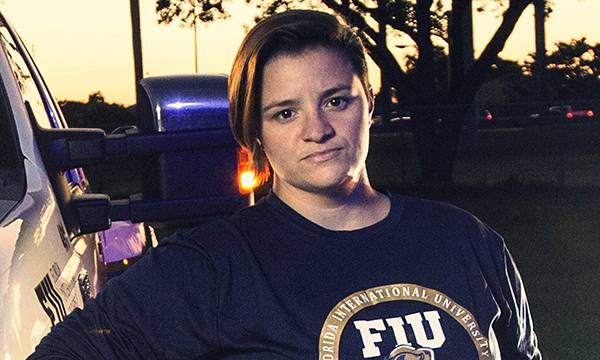NDMS Trauma and Critical Care Team Supported Medical Professionals with Intubated COVID-19 Patients
HHS Supported Response to the Novel Coronavirus in El Paso, Continues Support Nationwide
November 17, 2020 | By: HHS Office of the Assistant Secretary for Preparedness and Response
As part of the response to the COVID-19 pandemic, approximately 100 experts from across the country deployed recently as part of the National Disaster Medical System (NDMS) to provide temporary medical surge support to three hospitals in El Paso, Texas. Although this mission has ended, NDMS responders continue to provide important services in other communities across the country.
Beyond the whirring of the hospital machinery, past the area where clinicians don additional personal protective gear, Bridget Pelaez, Deputy Commander of a Trauma and Critical Care Team (TCCT), was helping lead a team of federal responders that deployed in El Paso where the TCCT was working with local hospital staff to respond to the increase in COVID-19 cases and provide care to patients in a COVID-19 unit.

The team had been seeing some of the most severe patients in El Paso, specifically providing care to intubated patients in a local hospital. Bridget helped lead the team coordinating their care and working with the hospital to ensure that everything ran smoothly.
Bridget is dedicated to ensuring that the NDMS medical professionals have the support they need to fulfill their mission of providing the best of care in the worst of times. She’s been working with NDMS for nearly a decade and has responded to many incidents, including hurricanes, earthquakes and COVID-19.
“It was an honor to be able to represent NDMS on that mission and to support the community of El Paso,” said Deputy Commander Pelaez. “We were focused on working with the hospital to provide the best possible care to patients that need it the most and support the local hospital system with important critical care.”
Deputy Commander Pelaez, a paramedic and nurse by clinical training, realized early in her career that that she wanted to have a bigger impact. So she joined the NDMS where she is able to have a seat at the table to make decisions and provide care to help Americans in the wake of disasters and emergencies.
“One of the best things you can do as a health care responder is represent our nation’s health response in disasters and be surrounded by brothers and sisters that care not only about the survivors and the mission but also about each other,” Deputy Commander Pelaez said.
When Bridget isn’t deployed with the NDMS she serves as the Assistant Director for the Division of Operations and Safety at Florida International University and as an adjunct professor for the Academy for International Disaster Preparedness. Now, she is one of the hundreds of experts deployed across the country to help the whole of government response to COVID-19.
Bridget
and her TCCT’s mission in El Paso may have come to an end, but other
medical personal with the NDMS are also supporting the whole of
government response to the novel coronavirus across the nation. Bridget
is just one of our everyday heroes of the NDMS that provide patient
care, patient movement, and definitive care; contribute veterinary
services; furnish fatality management support; and more.
Since January, ASPR has deployed over 1,400 of medical, logistical, and command and control personnel from NDMS to help states, territories, and jurisdictions respond to the COVID-19 pandemic. These deployed personnel include physicians, physician assistants, nurses, respiratory therapists, paramedics, pharmacists, and behavioral health specialists who serve as intermittent federal personnel. When they aren’t deployed, they are the medical and support professionals in whom we entrust our health on a day-to-day basis. Currently, NDMS teams – along with healthcare providers from U.S. Public Health Service Commissioned Corps – are providing surge support at several hospitals or long-term care facilities across the country.
To learn more about HHS’ response to COVID-19, please visit the ASPR COVID-19 Response page.

